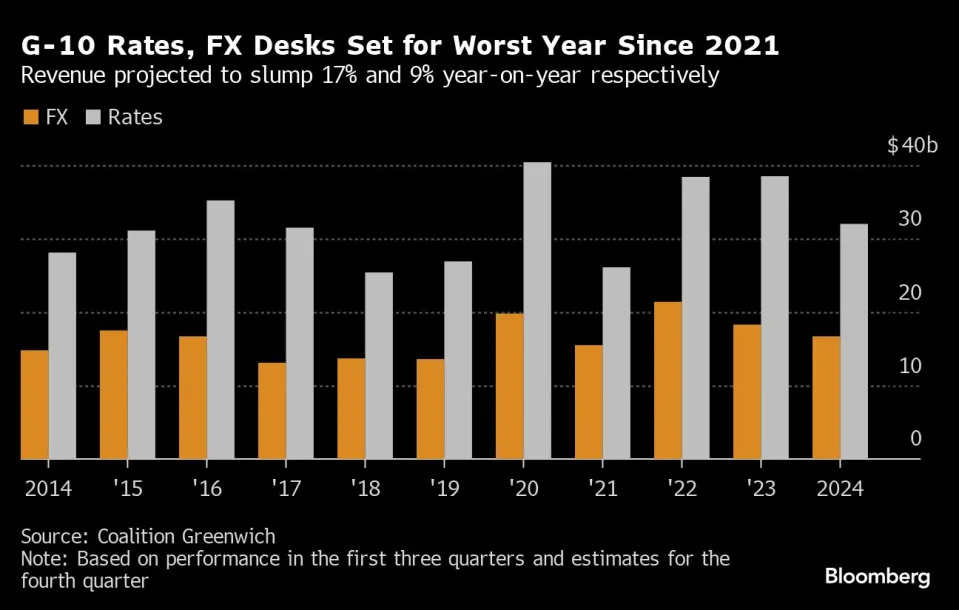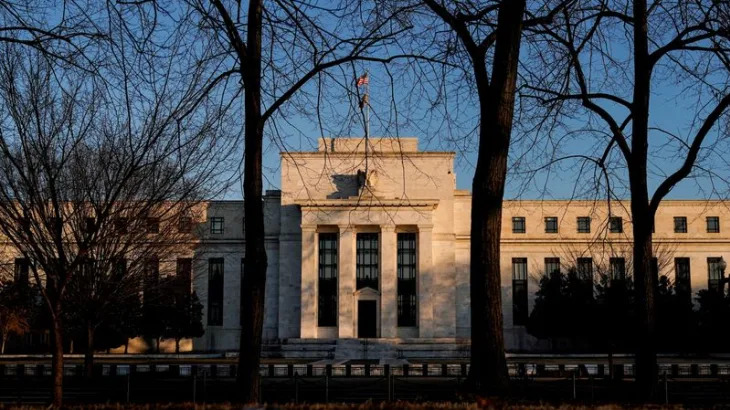(Bloomberg) — The world’s banks are on track to report the lowest revenue from foreign-exchange and rates trading since the pandemic, hit by tighter margins and a challenging macroeconomic backdrop.
Over 250 firms including Goldman Sachs Group Inc. ( GS ), JPMorgan Chase & Co. ( JPM ), Citigroup Inc. ( C ) and Morgan Stanley ( MS ) are forecast to make a total of $32 billion from trading of Group-of-10 rates and $16.7 billion from currencies, according to data collected by Coalition Greenwich. That’s about 17% and 9% less than last year, respectively.
Investor confidence in making big macro calls dwindled this year as economic data surprises whiplashed bets on interest-rate cuts from the world’s major central banks. A seemingly too-close-to-call US presidential election and the unwind of once-popular yen-funded carry trades also rattled markets.
“2024 has been a year of sitting and waiting on the sidelines,” said Angad Chhatwal, head of global macro markets at Coalition Greenwich. “Hedge funds have come into the market sporadically around data points and events but they’ve not been as active on a continuous basis compared to previous years.”
Macro trading revenues have also been hit by tighter margins this year, Chhatwal said, as increasing industry competition and advancements in electronic trading weigh on prices.

Coalition Greenwich forecasts rates trading revenues will drop further to around $30.9 billion in 2025 and $28.1 billion in 2026 as non-bank market makers expand their presence and as bonds catch up on the electronification of other markets.
Meanwhile, the performance of currency traders is seen improving to $17.2 billion in revenues in 2025 and $17.6 billion in 2026. Donald Trump’s administration is expected to fuel volatility in the $7.5 trillion-a-day foreign-exchange market.
“We see a lot more positioning happening on the FX side around the rate change cycle,” said Chhatwal. “Corporate activity is also becoming more robust and that has much more of a positive impact for FX versus rates.”






